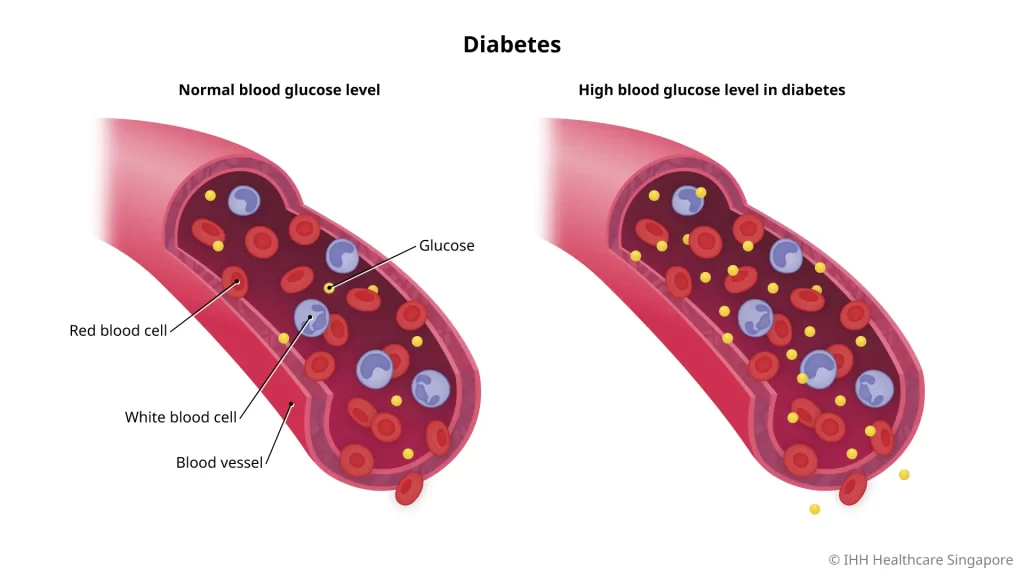
What Is the Main Cause of Diabetes?
Diabetes is a chronic condition that affects how your body processes blood sugar, also known as glucose. It’s one of the most widespread health issues globally, impacting millions of people. While there are different types of diabetes—Type 1, Type 2, and gestational diabetes—the most common form is Type 2, and it accounts for more than 90% of all diabetes cases.
So, what’s the main cause of diabetes? The answer depends on the type, but when we talk about the surge in diabetes cases worldwide, we’re mostly talking about Type 2 diabetes. And the main culprit behind it is insulin resistance, often driven by lifestyle factors such as poor diet, lack of physical activity, and obesity.
Understanding Insulin and Blood Sugar
To grasp the root cause of diabetes, you need to understand how insulin works. Insulin is a hormone produced by the pancreas. Its job is to help glucose enter the body’s cells, where it can be used for energy. When you eat, especially foods rich in carbohydrates, your blood sugar rises. In response, your pancreas releases insulin to move the sugar from your bloodstream into your cells.
In Type 1 diabetes, the immune system mistakenly attacks the insulin-producing cells in the pancreas. This type is not caused by lifestyle and usually appears in childhood or adolescence. But in Type 2 diabetes, the problem starts when the body’s cells stop responding properly to insulin. This is called insulin resistance. Over time, the pancreas can’t keep up with the increased demand for insulin, and blood sugar levels rise uncontrollably.
Main Cause: Insulin Resistance
Insulin resistance is the main cause of Type 2 diabetes. But what causes insulin resistance? There’s no single factor, but the most common contributors include:
- Excess body fat, especially around the abdomen: Fat tissue—particularly visceral fat—releases inflammatory chemicals that interfere with insulin signaling. This makes the body less responsive to insulin.
- Lack of physical activity: Regular movement helps your muscles absorb glucose and use insulin efficiently. A sedentary lifestyle weakens this mechanism.
- Unhealthy diet: Diets high in processed foods, sugar, refined carbohydrates, and saturated fats increase the risk of insulin resistance. They flood the body with glucose and spike insulin levels repeatedly, leading to metabolic wear and tear.
- Genetics and family history: While lifestyle plays a major role, having a parent or sibling with Type 2 diabetes increases your risk. Genes can make some people more prone to insulin resistance.
- Chronic stress and poor sleep: These factors affect hormone levels and insulin sensitivity. Elevated cortisol (the stress hormone) can lead to higher blood sugar and promote fat storage.
Other Contributing Factors
Though insulin resistance is central, other factors can tip the balance toward full-blown diabetes:
- Aging: As we age, muscle mass tends to decline while fat increases. This shift makes the body more insulin-resistant.
- Hormonal disorders: Conditions like polycystic ovary syndrome (PCOS) and Cushing’s syndrome are linked to insulin resistance and diabetes.
- Certain medications: Some drugs—like steroids, antipsychotics, and statins—can raise blood sugar levels or reduce insulin sensitivity.
What About Type 1 Diabetes?
Type 1 diabetes is caused by an autoimmune reaction. The body attacks its own insulin-producing cells in the pancreas. Researchers don’t know exactly what triggers this, but it’s believed to involve a mix of genetic and environmental factors, such as viral infections. Unlike Type 2, Type 1 isn’t preventable and isn’t linked to lifestyle habits.
Preventing Type 2 Diabetes
The good news is that Type 2 diabetes is largely preventable. By tackling the main cause—insulin resistance—you can significantly reduce your risk. Here’s how:
- Maintain a healthy weight.
- Eat a balanced diet rich in fiber, lean protein, healthy fats, and whole foods.
- Exercise regularly—aim for at least 150 minutes of moderate activity per week.
- Manage stress and get enough sleep.
- Get regular checkups to monitor blood sugar and catch problems early.
Conclusion
The main cause of diabetes—specifically Type 2 diabetes—is insulin resistance, which is heavily influenced by lifestyle factors. Obesity, poor diet, inactivity, and stress all feed into this problem. Understanding how your choices affect your body’s insulin response is the first step in preventing or managing diabetes. While genetics play a role, your daily habits are the biggest drivers of your risk.